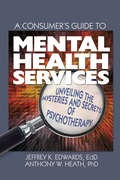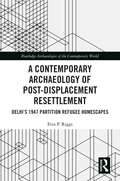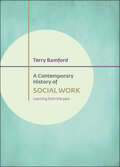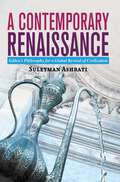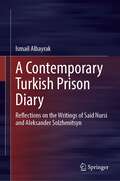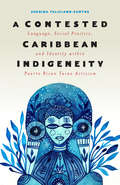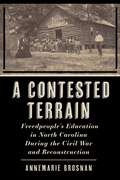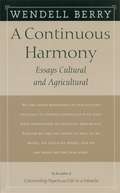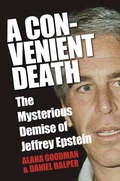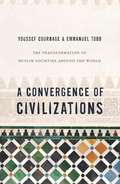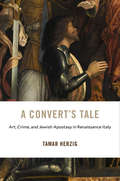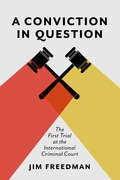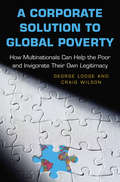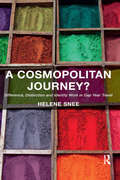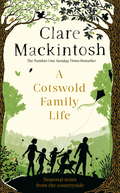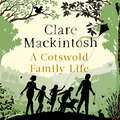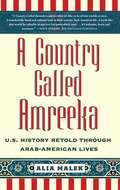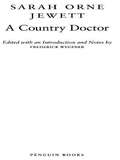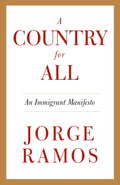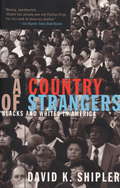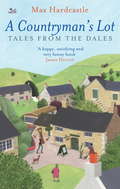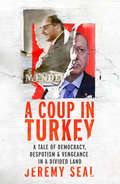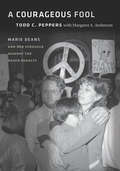- Table View
- List View
A Consumer's Guide to Mental Health Services: Unveiling the Mysteries and Secrets of Psychotherapy
by Jeffrey K. Edwards Anthony W. HeathA unique consumer resource for understanding mental health treatment With over 250 models of counseling and psychotherapy currently used to treat emotional problems and serious mental illness, figuring out where to look for the right services can be a daunting task. A Consumer&’s Guide to Mental Health Services offers pragmatic solutions for those considering or already beginning treatment. It helps you to make important decisions regarding whether seeing a psychiatrist, a social worker, a counselor, or a psychologist is best for your particular needs. It also explores health insurance and coverage of treatment as well as how long it may take for you to begin feeling like yourself again. This valuable text looks at the intricacies of the mental health care system and provides a helpful summary that is both accessible and useful. If you&’ve ever tried to find help for a major life transition, depression, or anxiety and have been overwhelmed by the options for mental health treatment, you are not alone. A Consumer&’s Guide to Mental Health Services is a unique text that breaks down the vast array of service options with a critical eye so consumers can get the vital information they need in a straightforward and accessible way. This comprehensive text even includes a "Questions to Ask" section that will help you find the right clinician to fit your exact needs. Some of the topics A Consumer&’s Guide to Mental Health Services covers in detail are: causes of mental health problems the three main models of mental health how clinicians who use the different models view mental health types of providers available and the different services they offer talk therapies and medications ethical codes of all professions consumers&’ rights the insurance industry, its history and current role matching treatment to the problem alternatives to therapy and much more! A Consumer&’s Guide to Mental Health Services is a valuable and practical resource for anyone considering or beginning mental health treatment or their family and friends. It is also a useful addition for educators or students working through introductory courses in all of the major mental health fields.
A Contemporary Archaeology of Post-Displacement Resettlement: Delhi’s 1947 Partition Refugee Homescapes (Routledge Archaeologies of the Contemporary World)
by Erin P. RiggsThis book explores the archaeology of the 1947 Partition, the largest mass migration in human history, and the resulting resettlement of half a million refugees in Delhi, India’s capital city.Interweaving material analysis with oral history collection and archival sources, this book considers how Delhi’s Partition refugees have interacted with the city's built landscapes through time. It demonstrates how government-built refugee colonies, influenced by both socialist and capitalist design philosophies, provided an effective and adaptable setting for resettlement. In contrast, it illustrates how Delhi’s pre-Partition landscapes—including ‘evacuee properties’ vacated by out-migrating Muslims and sections of the planned, colonial capital—have proven more problematic venues for rehousing. In these contexts, refugee families navigated life within homes shaped by past occupants and colonial-era wealth disparities. The book highlights that despite such difficulties and the unprecedented scale of Partition’s impact on Delhi, refugees have obtained an impressive degree of material success and social acceptance in the city. This example challenges assumptions about the aid-dependency of refugee communities, the potential effectiveness of public housing, and the mutability of national belonging.This interdisciplinary case study will be of interest to scholars in varied fields of study, including archaeology, architectural history, cultural anthropology, human geography, and South Asian studies.
A Contemporary History of Social Work: Learning from the Past
by Terry BamfordDrawing on lessons from the recent history of social work to identify how and why it has lost its privilege and influence, this book challenges social work students to understand why social work has failed to maintain its position as a driver of social reform. Bamford looks forward to a new model of practice that places a commitment to put social justice back at the heart of professional practice. The book contributes to the topical debates about social work education and the identity of the profession, encouraging critical thinking about organisation models, practice content and meaning of professionalism in social work. Students are asked to consider questions such as ‘why has social work found it so hard to define its role? ‘, ‘is the neoliberal tide irreversible?’, and ‘do the jibes of political correctness have any substance?’. The book provides students of social work, history of social work and social policy, with a greater understanding of how social work became an unloved profession, whilst simultaneously charting a more hopeful course for the future.
A Contemporary Renaissance: Gulen's Philosophy for a Global Revival of Civilization
by Sulayman AshratiAshrati's book is a study of intellectual framework laid out by Fethullah Gulen in his call for the revival of humanity's changing power. Gulen, a prominent scholar of Islam and a social activist, is the inspiration behind the global network of education, charity and interfaith dialogue. This book is an attempt to show how significant Gulen's layout for reconstruction is to Islam and to the rest of the world.In his analysis of Gulen's thought of reconstruction, Ashrati looks at concepts including the strategy of nonviolence, spiritual dimension of revival, foundations of humanism in Islam, intellectual and spiritual leadership, men of service, and integration of science and religion. His analogy of construction and architectural work comes handy in understanding both the complexity and openness of the call for revival by Gulen.
A Contemporary Turkish Prison Diary: Reflections on the Writings of Said Nursi and Aleksander Solzhenitsyn
by Ismail AlbayrakThis book explores the religious experiences of two notable figures who endured severe trials under authoritarian regimes: Bediuzzaman Said Nursi (1877–1960) within the Islamic tradition, and Aleksander Solzhenitsyn (1918–2008) within the Russian Orthodox Christian tradition. Against the tumultuous backdrop of the twentieth century’s spiritual, social, political, and intellectual upheavals, both Nursi and Solzhenitsyn grappled with immense hardships because of their beliefs. Despite immense tribulations, both individuals demonstrated unwavering faith and resilience in the face of adversity, continuing their scholarly and literary activities. The current study centers on the dichotomy of spiritual confinement and expansiveness, illustrating how people can experience spiritual distress even without physical restraints. It explores the historical and conceptual aspects of imprisonment within Christian and Muslim perspectives, explores the reasons for Nursi and Solzhenitsyn's incarceration, examines their coping mechanisms in the face of hardship, and underscores the role of faith and spirituality. The author integrates personal experiences, particularly his own incarceration during the aftermath of the 2016 Turkish staged coup attempt, within the context of the narratives of Nursi and Solzhenitsyn. The book addresses court proceedings, release, departure from Turkey, and resettlement in Australia. Throughout, the author draws parallels between their own observations and those of Nursi and Solzhenitsyn, contributing to the broader discourse on individual spirituality and collective consciousness. The book offers insights into spiritual resilience in the face of adversity, utilizing the lives of these figures to illuminate shared human experiences. A unique collation of personal narration and scholarly reflection, it is relevant to academics and students in history, political science, sociology, Islamic and Middle Eastern studies, and to social scientists researchingthe phenomenon of exile and prison in different countries across the world. It also speaks to the work of activists and policymakers in human rights.
A Contested Caribbean Indigeneity: Language, Social Practice, and Identity within Puerto Rican Taíno Activism (Critical Caribbean Studies)
by Sherina Feliciano-SantosA Contested Caribbean Indigeneity is an in-depth analysis of the debates surrounding Taíno/Boricua activism in Puerto Rico and the Caribbean diaspora in New York City. Drawing on in-depth ethnographic research, media analysis, and historical documents, the book explores the varied experiences and motivations of Taíno/Boricua activists as well as the alternative fonts of authority they draw on to claim what is commonly thought to be an extinct ethnic category. It explores the historical and interactional challenges involved in claiming membership in, what for many Puerto Ricans, is an impossible affiliation. In focusing on Taíno/Boricua activism, the books aims to identify a critical space from which to analyze and decolonize ethnoracial ideologies of Puerto Ricanness, issues of class and education, Puerto Rican nationalisms and colonialisms, as well as important questions regarding narrative, historical memory, and belonging.
A Contested Terrain: Freedpeople's Education in North Carolina During the Civil War and Reconstruction (Reconstructing America)
by AnneMarie BrosnanA testament to the resilience and determination of Black North Carolinians to achieve educational equalityThis book examines the educational experiences of Black North Carolinians during the American Civil War and Reconstruction period, 1861–1877. By highlighting the collaborative efforts that led to the growing network of schools for the formerly enslaved people, it argues that schooling the Freedpeople was a contested terrain, fraught with conflicting visions of Black freedom and the role education should play. Although Black men and women emerged as the driving force behind the educational endeavors of this period, their work was facilitated by Northern aid and missionary societies, the federally-mandated Freedmen’s Bureau, and over 1,400 teachers from various regional and racial backgrounds. Yet the educational landscape was far from uniform, and the individuals and organizations involved had their distinct visions regarding the nature and purpose of Freedpeople’s education.Through the use of qualitative and quantitative research methods, this book offers new insights into the reasons why Black and white Northerners and Southerners elected to become teachers. By examining their diverse motivations and experiences, it argues that attitudes toward Freedpeople’s education were complex and fluid, defying neat characterization.Despite mounting obstacles and opposition to their work, Black North Carolinians’ unrelenting quest for education ultimately gave rise to free public schooling for both races, the professionalization of Black teachers, and an extensive network of Historically Black Colleges and Universities.
A Continuous Harmony: Essays Cultural and Agricultural
by Wendell BerryBerry's second collection of essays was first published in 1972, and contained eight essays, including the seminal "Think Little," which was printed in "The Last Whole Earth Catalogue" and reprinted around the globe, and the splendid centerpiece, "Discipline and Hope," an insightful and articulate essay of instruction and caution.
A Convenient Death: The Mysterious Demise of Jeffrey Epstein
by Daniel Halper Alana GoodmanA must-read for fans of the Netflix docuseries Filthy Rich: The full investigation of the shocking death of billionaire Jeffrey Epstein and those powerful enough to have orchestrated it. In A Convenient Death, investigative reporters Alana Goodman and Daniel Halper search for the truth of what really happened to Jeffrey Epstein. With access to Epstein's victims and lawyers, to doctors, Wall Street insiders and law enforcement officers, they reveal the dirty secrets and sinister ties that may have driven someone in Epstein&’s circle to take matters into their own hands. On the morning of August 10, 2019, Epstein, friend and financier to the rich and powerful, was found unresponsive in his prison cell in lower Manhattan, where he awaited his second trial for sexual predation and other crimes. He was rushed to a local hospital and one hour later pronounced dead by suicide. Across the world, a sinister web of powerful billionaires, celebrities, and politicians, including Bill and Hillary Clinton, had reason to sigh with relief at news of Epstein&’s death. Having flown on his private planes and visited his many homes—the sites of so many illicit activities—they had much to lose if their transgressions were ever exposed. And now, Epstein was silenced for good. But cracks in the official story soon emerged. And the questions kept coming: · Why did the surveillance cameras in front of Epstein&’s cell stop working that night? · Why was Epstein's cellmate transferred out and never replaced? · Why was a high-profile prisoner so suddenly taken off suicide watch and left unguarded for eight hours? Was Epstein murdered to protect the powerful people who feared what he might reveal? The American public deserves to know the truth. With this book, they can finally understand the facts and decide for themselves.
A Convergence of Civilizations: The Transformation of Muslim Societies Around the World
by Youssef Courbage Emmanuel ToddWe are told that Western/Christian and Muslim/Arab civilizations are heading towards inevitable conflict. The demographics of the West remain sluggish, while the population of the Muslim world explodes, widening the cultural gap and all but guaranteeing the outbreak of war. Leaving aside the media's sound and fury on this issue, measured analysis shows another reality taking shape: rapprochement between these two civilizations, benefiting from a universal movement with roots in the Enlightenment. The historical and geographical sweep of this book discredits the notion of a specific Islamic demography. The range of fertility among Muslim women, for example, is as varied as religious behavior among Muslims in general. Whether agnostics, fundamentalist Salafis, or al-Qaeda activists, Muslims are a diverse group that prove the variety and individuality of Islam. Youssef Courbage and Emmanuel Todd consider different degrees of literacy, patriarchy, and defensive reactions among minority Muslim populations, underscoring the spread of massive secularization throughout the Arab and Muslim world. In this regard, they argue, there is very little to distinguish the evolution of Islam from the history of Christianity, especially with Muslims now entering a global modernity. Sensitive to demographic variables and their reflection of personal and social truths, Courbage and Todd upend a dangerous meme: that we live in a fractured world close to crisis, struggling with an epidemic of closed cultures and minds made different by religion.
A Convert’s Tale: Art, Crime, and Jewish Apostasy in Renaissance Italy (I Tatti Studies In Italian Renaissance History Ser. #23)
by Tamar HerzigSalomone da Sesso was a virtuoso goldsmith in Renaissance Italy. Brought down by a sex scandal, he saved his skin by converting to Catholicism. Tamar Herzig explores Salamone’s world—his Jewish upbringing, his craft and patrons, and homosexuality. In his struggle for rehabilitation, we see how precarious and contested was the meaning of conversion.
A Conviction in Question: The First Trial at the International Criminal Court
by Jim FreedmanA lively narrative account of the first case to appear at the International Criminal Court, A Conviction in Question documents the trial of Union of Congolese Patriots leader and warlord, Thomas Lubanga Dyilo. Although Dyilo’s crimes, including murder, rape, and the forcible conscription of child soldiers, were indisputable, legal wrangling and a clash of personalities caused the trial to be prolonged for an unprecedented six years. This book offers an accessible account of the rapid evolution of international law and the controversial trial at the foundation of the International Criminal Court. The first book to thoroughly examine Dyilo’s trial, A Conviction in Question looks at the legal issues behind each of the trial’s critical moments, including the participation of Dyilo’s victims at the trial and the impact of witness protection. Through eye-witness observation and analysis, Jim Freedman shows that the trial suffered from all the problems associated with ordinary criminal law trials, and uses Dyilo’s case to further comment on the role of international courts in a contemporary global context.
A Corporate Solution to Global Poverty: How Multinationals Can Help the Poor and Invigorate Their Own Legitimacy
by Craig Wilson George LodgeWorld leaders have given the reduction of global poverty top priority. And yet it persists. Indeed, in many countries whose governments lack either the desire or the ability to act, poverty has worsened. This book, a joint venture of a Harvard professor and an economist with the International Finance Corporation, argues that the solution lies in the creation of a new institution, the World Development Corporation (WDC), a partnership of multinational corporations (MNCs), international development agencies, and nongovernmental organizations (NGOs). In A Corporate Solution to Global Poverty, George Lodge and Craig Wilson assert that MNCs have the critical combination of capabilities required to build investment, grow economies, and create jobs in poor countries, and thus to reduce poverty. Furthermore, they can do so profitably and thus sustainably. But they lack legitimacy and risk can be high, and so a collective approach is better than one in which an individual company proceeds alone. Thus a UN-sponsored WDC, owned and managed by a dozen or so MNCs with NGO support, will make a marked difference. At a time when big business has been demonized for destroying the environment, enjoying one-sided benefits from globalization, and deceiving investors, the book argues, MNCs have much to gain from becoming more effective in reducing global poverty. This is not a call for philanthropy. Lodge and Wilson believe that corporate support for the World Development Corporation will benefit not only the world's poor but also company shareholders as a result of improved MNC legitimacy and stronger markets and profitability.
A Cosmopolitan Journey?: Difference, Distinction and Identity Work in Gap Year Travel
by Helene SneeDoes travel broaden the mind? This book explores this question through an innovative sociological study of gap year travel. Taking a year out overseas between school and university is an increasingly legitimate practice for young people in the UK. But what do young people get out of gap years? A wide range of 'official' sources acknowledge gap years as a way of becoming a global citizen and more employable at the same time. Instead of automatically assuming that gap years are a 'good thing', this book critically considers how this contemporary rite of passage could contribute to the reproduction of structural disadvantage at both a national and international level in relation to young people's routes into education and employment, and representations of difference and distinction in cultural practices. The key argument running throughout the book is that well-established ways of thinking about and understanding the world are used to frame gap year experiences, including how other people and places are different; the influence of class in determining what has cultural value; and what sort of identity work is worthwhile. Gap years are located at a point where a number of fields overlap: education, employment and the consumption of leisure travel. A Cosmopolitan Journey? will therefore be of interest to students, academics and practitioners in these areas.
A Cotswold Family Life: heart-warming stories of the countryside from the bestselling author
by Clare MackintoshDon't miss the powerful and page-turning new novel from Clare Mackintosh - AFTER THE END is out now___________From bestselling author Clare Mackintosh, A Cotswold Family Life is a humorous, warm memoir of family life in the countryside'Insightful, funny, absorbing' Prue Leith'Original yet totally recognisable' Katie Fforde'Sheer bliss!' Jill Mansell'Heartfelt and poignant' Sunday ExpressI have always loved the Cotswolds. I think I loved them even before I found them, in that half-formed ideal one has of where to put down roots. Somewhere peaceful, green, where the road meanders between drystone walls and from town to town, and a strip of blue bursts from brook to river and back again. For 8 years, Clare Mackintosh wrote for Cotswold Life about the ups and downs of life with a young family in the countryside. In this memoir she brings together all of those stories - and more - for the first time. From keeping chickens to getting the WI drunk, longing for an Aga to dealing with nits, Clare opens the door to family life with warmth and humour and heart.
A Cotswold Family Life: heart-warming stories of the countryside from the bestselling author
by Clare MackintoshDon't miss the powerful and page-turning new novel from Clare Mackintosh - AFTER THE END is out now___________From bestselling author Clare Mackintosh, A Cotswold Family Life is a humorous, warm memoir of family life in the countryside'Insightful, funny, absorbing' Prue Leith'Original yet totally recognisable' Katie Fforde'Sheer bliss!' Jill Mansell'Heartfelt and poignant' Sunday ExpressI have always loved the Cotswolds. I think I loved them even before I found them, in that half-formed ideal one has of where to put down roots. Somewhere peaceful, green, where the road meanders between drystone walls and from town to town, and a strip of blue bursts from brook to river and back again. For 8 years, Clare Mackintosh wrote for Cotswold Life about the ups and downs of life with a young family in the countryside. In this memoir she brings together all of those stories - and more - for the first time. From keeping chickens to getting the WI drunk, longing for an Aga to dealing with nits, Clare opens the door to family life with warmth and humour and heart.
A Cottage in Portugal
by Richard HewittHewitt and his wife after a brief vacation in Portugal decided to live there and enjoy the leisurely life and decent people. They did not realize the nature of the people around who were suspicious about newcomers. Now they live in USA and Portugal.
A Country Called Amreeka
by Alia Malek<P>Among the surfeit of narratives about Arabs that have been published in recent years, surprisingly little has been reported on Arabs in America -- an increasingly relevant issue. <P> This book is the most powerful approach imaginable: it is the story of the last forty-plus years of American history, told through the eyes of Arab Americans. It begins in 1963, before major federal legislative changes seismically transformed the course of American immigration forever. Each chapter describes an event in U. S. history -- which may already be familiar to us -- and invites us to live that moment in time in the skin of one Arab American. <P>The chapters follow a timeline from 1963 to the present, and the characters live in every corner of this country. These are dramatic narratives, describing the very human experiences of love, friendship, family, courage, hate, and success. There are the timeless tales of an immigrant community becoming American, the nostalgia for home, the alienation from a society sometimes as intolerant as its laws are generous. A Country Called Amreeka's snapshots allow us the complexity of its characters' lives with an impassioned narrative normally found in fiction. Read separately, the chapters are entertaining and harrowing vignettes; read together, they add a new tile to the mosaic of our history. <P>We meet fellow Americans of all creeds and colors, among them the Alabama football player who navigates the stringent racial mores of segregated Birmingham, where a church bombing wakes a nation to the need to make America a truly more equal place; the young wife from Ramallah -- now living in Baltimore -- who had to abandon her beautiful home and is now asked by a well-meaning American, "How do you like living in an apartment after living in a tent?"; the Detroit toughs and the potsmoking suburban teenagers, who in different decades become politicized and serious about their heritage despite their own wills; the homosexual man afraid to be gay in the Arab world and afraid to be Arab in America; the two formidable women who wind up working for opposing campaigns in the 2000 presidential election; the Marine fighting in Iraq who meets villagers who ask him, "What are you, an Arab, doing here?" <P>We glimpse how America sees Arabs as much as how Arabs see America. We revisit the 1973 oil embargo that initiated the American perception of all Arabs as oil-rich sheikhs; the 1979 Iranian hostage crisis that heralded the arrival of Middle Eastern Islam in the American consciousness; bombings across three decades in Los Angeles, Oklahoma City, and New York City that bring terrorism to American soil; and both wars in Iraq that have posed Arabs as the enemies of America. In a post-9/11 world, Arabic names are everywhere in America, but our eyes glaze over them; we sometimes don't know how to pronounce them or understand whence they come. <P>A Country Called Amreeka gives us the faces behind those names and tells the story of a community it has become essential for us to understand. We can't afford to be oblivious.
A Country Doctor
by Jewett Sarah OrneAs the ward of the widowed physician Dr. Leslie, young Nan Prince becomes interested in medicine. But when she enters a medical college, she finds she must choose between marriage and a career as a doctor, between the expectations of society and her duty to her true self. In part an homage to Sarah Orne Jewett's beloved father, A Country Doctor portrays an America on the verge of change and Nan, ultimately, as a courageous young woman with a new world opening to her. This edition, which reproduces the obituary of her father that Jewett wrote but published anonymously, includes an introduction exploring the rise of women doctors in nineteenth-century America and showing A Country Doctor as a pioneering narrative of a woman passionately following her professional calling. Book jacket.
A Country for All
by Jorge RamosFor decades, fixing the United States' broken immigration system has been one of the most urgent challenges facing our country, and time and time again, politicians have passed the buck. With anti-immigrant sentiment rising around the country, as evidenced by the passage of a controversial new law in Arizona, it is now more important than ever to remember the role immigrants play in enriching our economy and culture, and to find a way to incorporate the millions of productive, law-abiding workers who have been drawn to the United States by the inexorable pull of freedom and economic opportunity. No longer should they be forced to work in the shadows, with no hope for equal rights as American citizens. In this timely book, award-winning journalist Jorge Ramos makes the case for a practical and politically achievable solution to this emotional issue. Ramos argues that we have a simple choice: to take a pragmatic approach that deals with the reality of immigration, or to continue a cruel and capricious system that doesn't work, wastes billions of dollars, and which stands in direct opposition to our national principles.
A Country of Strangers: Blacks and Whites in America
by David K. ShiplerA Country of Strangers is a magnificent exploration of the psychological landscape where blacks and whites meet. To tell the story in human rather than abstract terms, the Pulitzer Prize-winning writer David K. Shipler bypasses both extremists and celebrities and takes us among ordinary Americans as they encounter one another across racial lines.We learn how blacks and whites see each other, how they interpret each other's behavior, and how certain damaging images and assumptions seep into the actions of even the most unbiased. We penetrate into dimensions of stereotyping and discrimination that are usually invisible, and discover the unseen prejudices and privileges of white Americans, and what black Americans make of them.We explore the competing impulses of integration and separation: the reference points by which the races navigate as they venture out and then withdraw; the biculturalism that many blacks perfect as they move back and forth between the white and black worlds, and the homesickness some blacks feel for the comfort of all-black separateness. There are portrayals of interracial families and their multiracial children--expert guides through the clashes created by racial blending in America. We see how whites and blacks each carry the burden of our history.Black-white stereotypes are dissected: the physical bodies that we see, the mental qualities we imagine, the moral character we attribute to others and to ourselves, the violence we fear, the power we seek or are loath to relinquish.The book makes clear that we have the ability to shape our racial landscape--to reconstruct, even if not perfectly, the texture of our relationships. There is an assessment of the complexity confronting blacks and whites alike as they struggle to recognize and define the racial motivations that may or may not be present in a thought, a word, a deed. The book does not prescribe, but it documents the silences that prevail, the listening that doesn't happen, the conversations that don't take place. It looks at relations between minorities, including blacks and Jews, and blacks and Koreans. It explores the human dimensions of affirmative action, the intricate contacts and misunderstandings across racial lines among coworkers and neighbors. It is unstinting in its criticism of our society's failure to come to grips with bigotry; but it is also, happily, crowded with black people and white people who struggle in their daily lives to do just that.A remarkable book that will stimulate each of us to reexamine and better understand our own deepest attitudes in regard to race in America.
A Countryman's Lot: Tales From The Dales
by Max HardcastleMax and Vicky Hardcastle have a daydream . . .One day, they'll sell their cramped city-centre antiques shop and the overflowing upstairs flat and relocate to the beautiful Yorkshire Dales. If they could only find the perfect place to house both family and business, then that fantasy might become a reality. . . When a smallholding in a remote Dales village comes on the market, it seems like the answer to their prayers. Bullpen Farm might need 'some renovation', but it has an orchard, outbuildings and all the charm they've dreamt of. Before long, the Hardcastles find themselves the proud owners of a collection of ramshackle buildings and the newest members of a close-knit community which seems to have more than its fair share of eccentrics.From the antics of the antiques trade to the uproarious incidents of village life, it turns out that rural living isn't quite as tranquil as they'd imagined!'A happy, satisfying and very funny book' James Herriot
A Countryman's Lot: Tales From The Dales
by Max HardcastleMax and Vicky Hardcastle have a daydream . . .One day, they'll sell their cramped city-centre antiques shop and the overflowing upstairs flat and relocate to the beautiful Yorkshire Dales. If they could only find the perfect place to house both family and business, then that fantasy might become a reality. . . When a smallholding in a remote Dales village comes on the market, it seems like the answer to their prayers. Bullpen Farm might need 'some renovation', but it has an orchard, outbuildings and all the charm they've dreamt of. Before long, the Hardcastles find themselves the proud owners of a collection of ramshackle buildings and the newest members of a close-knit community which seems to have more than its fair share of eccentrics.From the antics of the antiques trade to the uproarious incidents of village life, it turns out that rural living isn't quite as tranquil as they'd imagined!'A happy, satisfying and very funny book' James Herriot
A Coup in Turkey: A Tale of Democracy, Despotism and Vengeance in a Divided Land
by Jeremy SealThe most dramatic, revealing and little-known story in Turkey's history - which illuminates the nation'Through the spellbinding career of a single, ill-fated leader, Jeremy Seal illuminates a bitterly divided country' Colin Thubron'Read this book if you're interested in Turkey. Read it if you're interested in power, hubris and redemption. Read it' Christopher de Bellaigue, author of The Islamic EnlightenmentIn the spring of 2016 travel writer Jeremy Seal went to Turkey to investigate perhaps the most dramatic, revealing and little-known episode in the country's history - the 'original' coup of 1960, which deposed the traditionalist Prime Minister Adnan Menderes. The story of Menderes - to his adoring supporters the country's founding democrat; to his sworn enemies its most infamous traitor - goes to the heart of the feud that continues to rage between the Western and secular ambitions of a minority elite and the religious and conservative instincts of the small-town majority. A Coup in Turkey is a thrilling account of the events leading up to the coup and the trials and executions that followed, a story of political subterfuge and score-settling, courtroom drama, state execution, authoritarian intolerance and ideological division. Seal travels through President Erdogan's Turkey, tracking down eye-witness accounts from survivors of the Menderes era in Istanbul, the historic metropolis, and the new capital at Ankara. As he expertly guides us through this extraordinary story, so the compelling parallels between past and present become strikingly clear, and he illuminates this troubled nation with a deep sympathy and love for the people and places he writes about. By focussing on one key event - one which many Turks regard with shame - this evocative, gripping portrait of Turkey recentres our understanding of the past and makes sense of one of Europe's most bewildering yet intriguing neighbours.'A wonderful writer' Robert Macfarlane
A Courageous Fool: Marie Deans and Her Struggle against the Death Penalty
by Todd C. Peppers Margaret A. Anderson Joseph M. GiarratanoThere have been many heroes and victims in the battle to abolish the death penalty, and Marie Deans fits into both of those categories. A South Carolina native who yearned to be a fiction writer, Marie was thrust by a combination of circumstances—including the murder of her beloved mother-in-law—into a world much stranger than fiction, a world in which minorities and the poor were selected to be sacrificed to what Supreme Court Justice Harry Blackmun called the "machinery of death."Marie found herself fighting to bring justice to the legal process and to bring humanity not only to prisoners on death row but to the guards and wardens as well. During Marie's time as a death penalty opponent in South Carolina and Virginia, she experienced the highs of helping exonerate the innocent and the lows of standing death watch in the death house with thirty-four condemned men.
